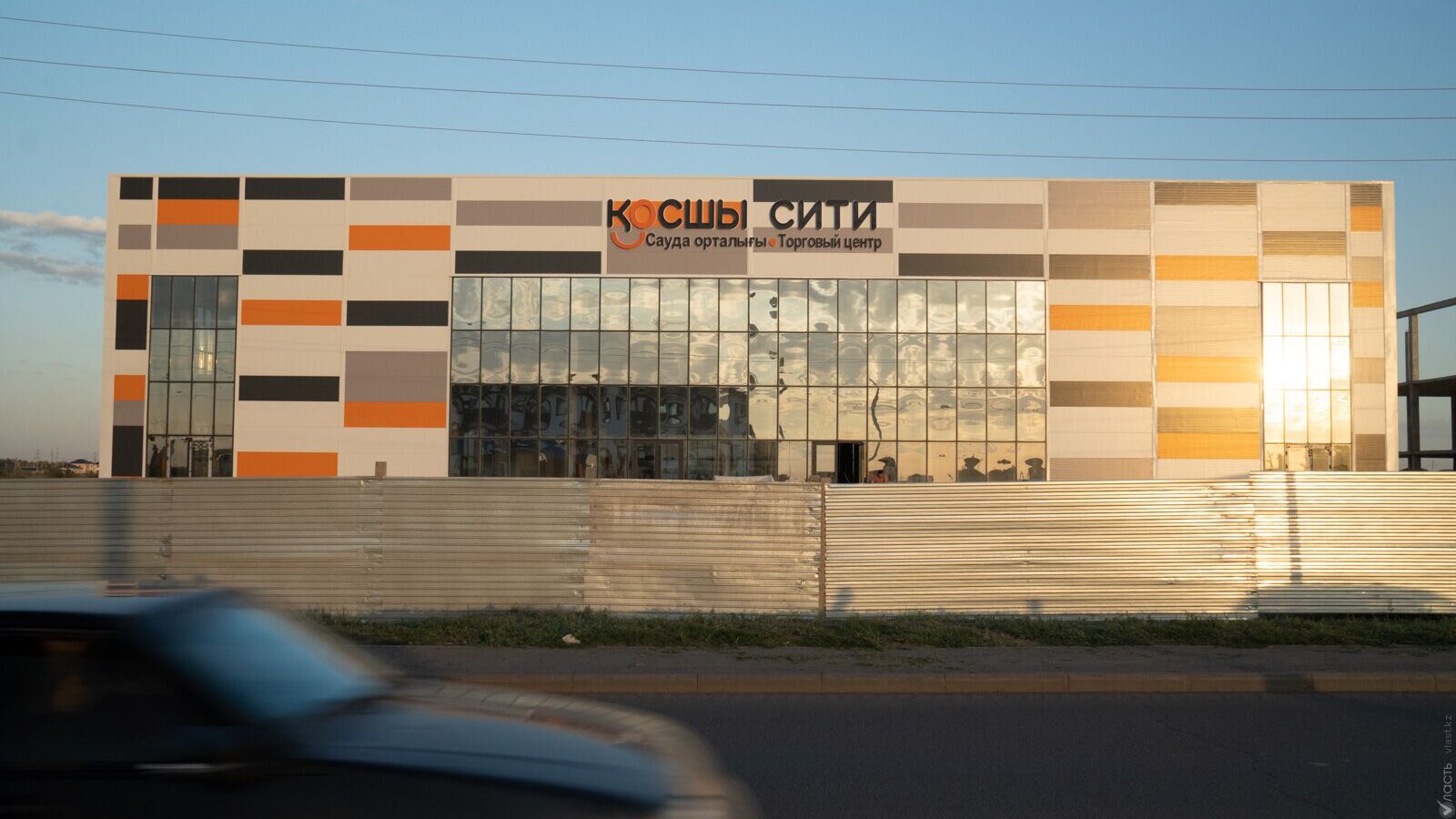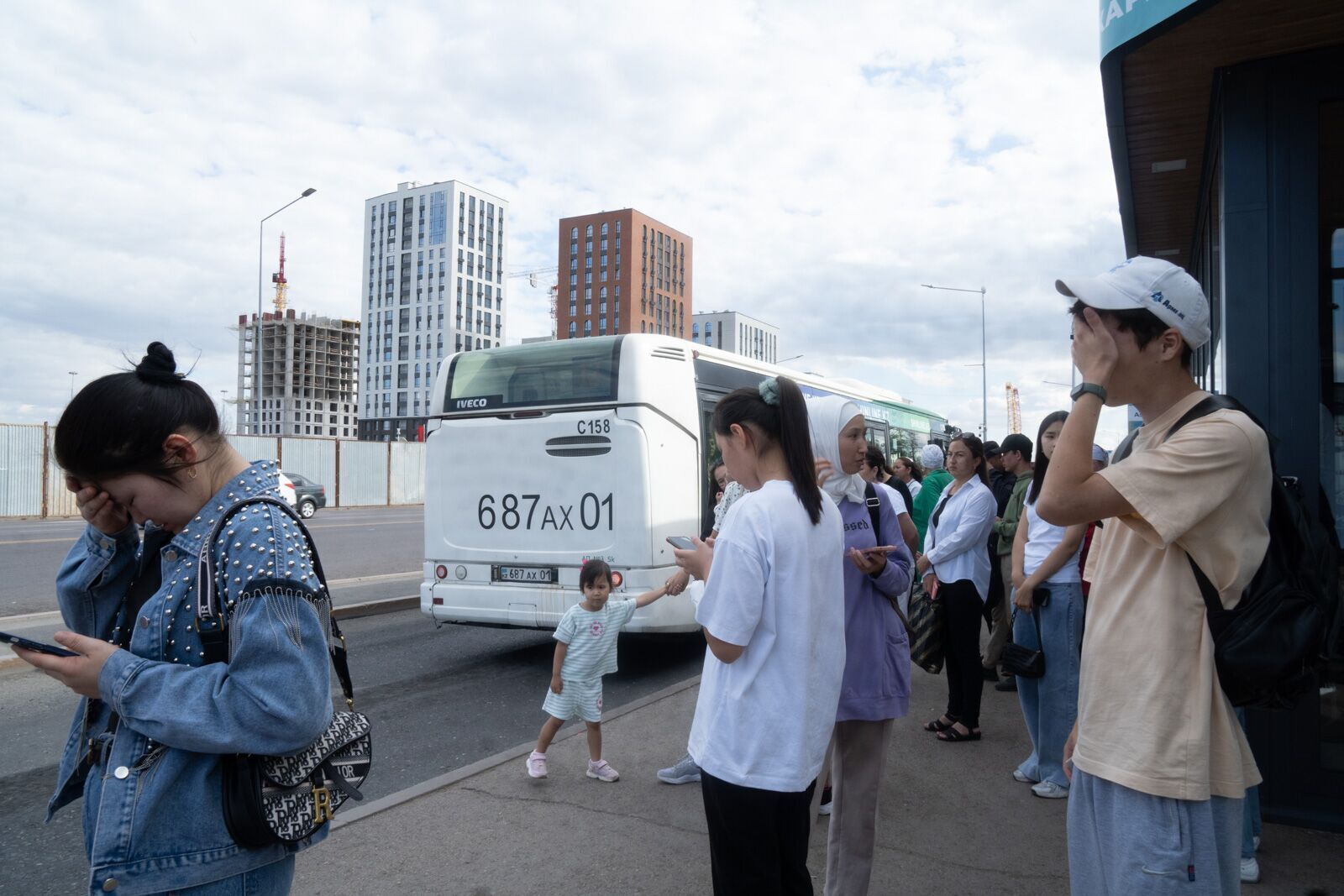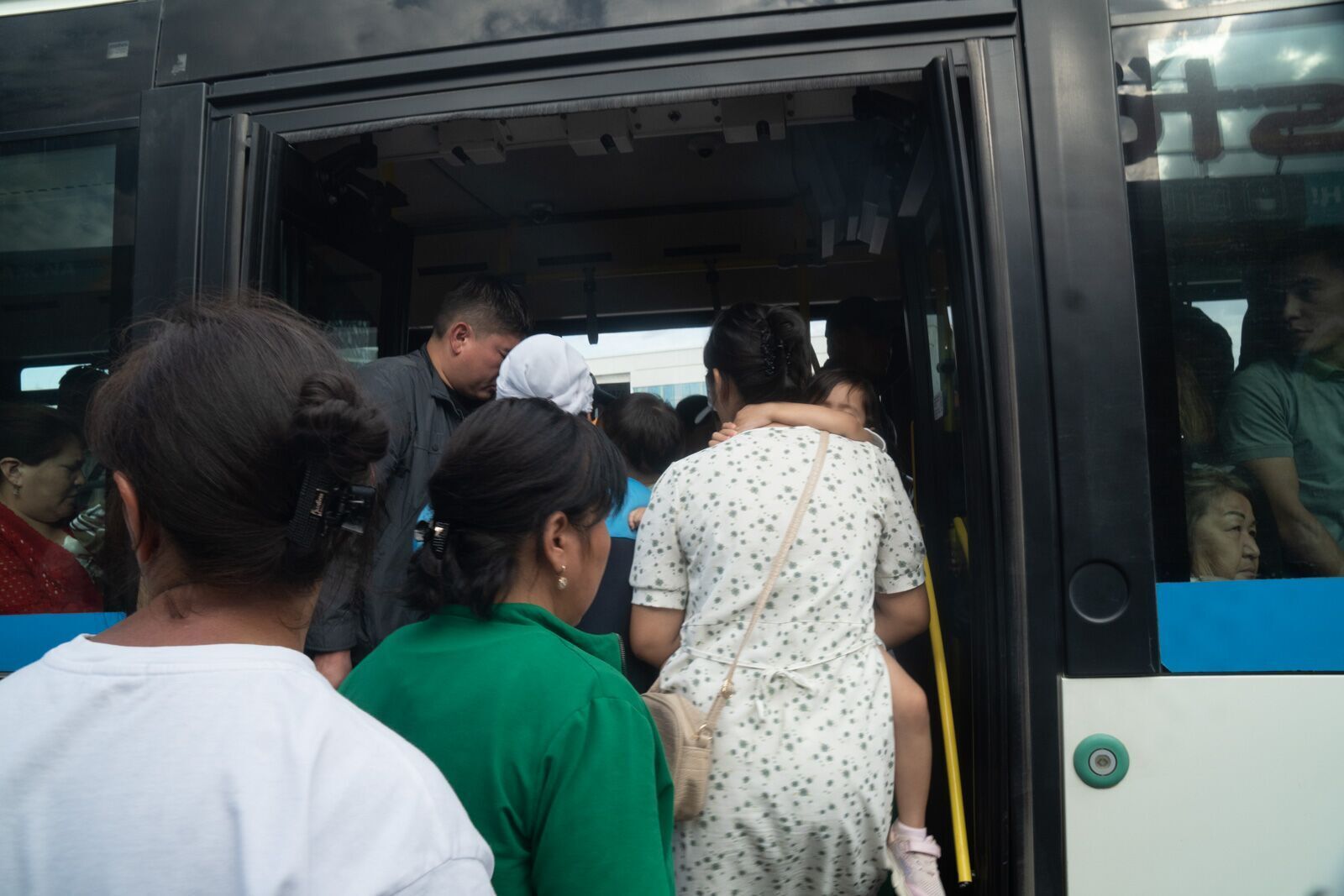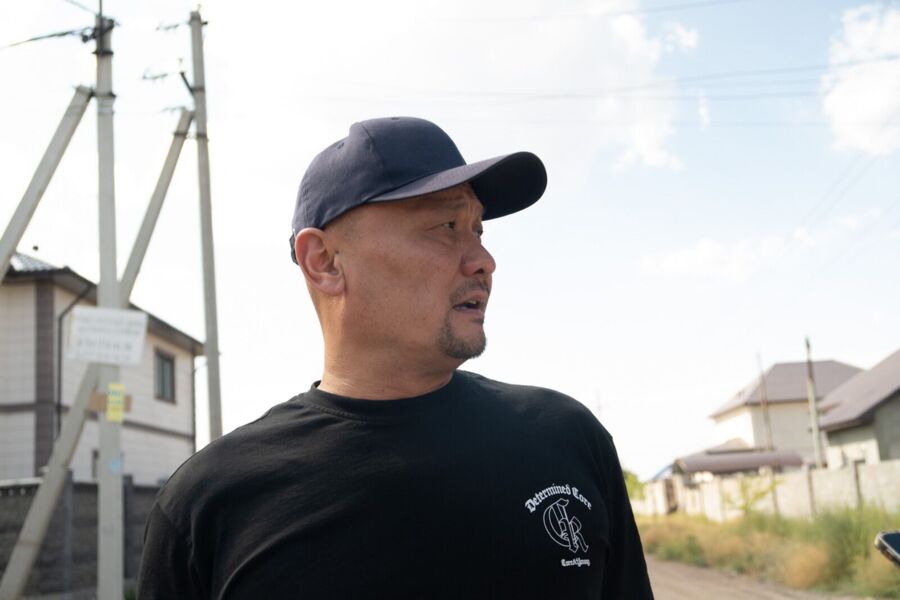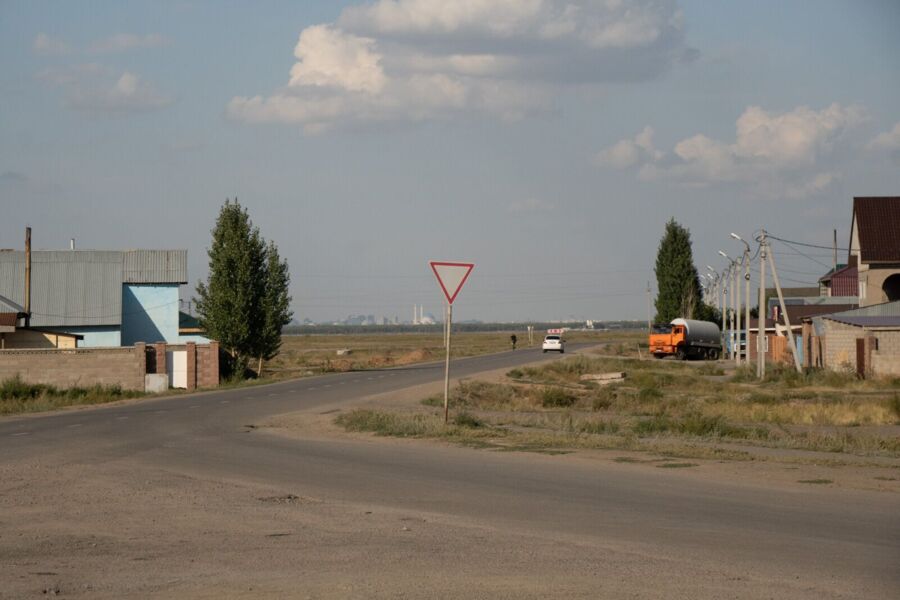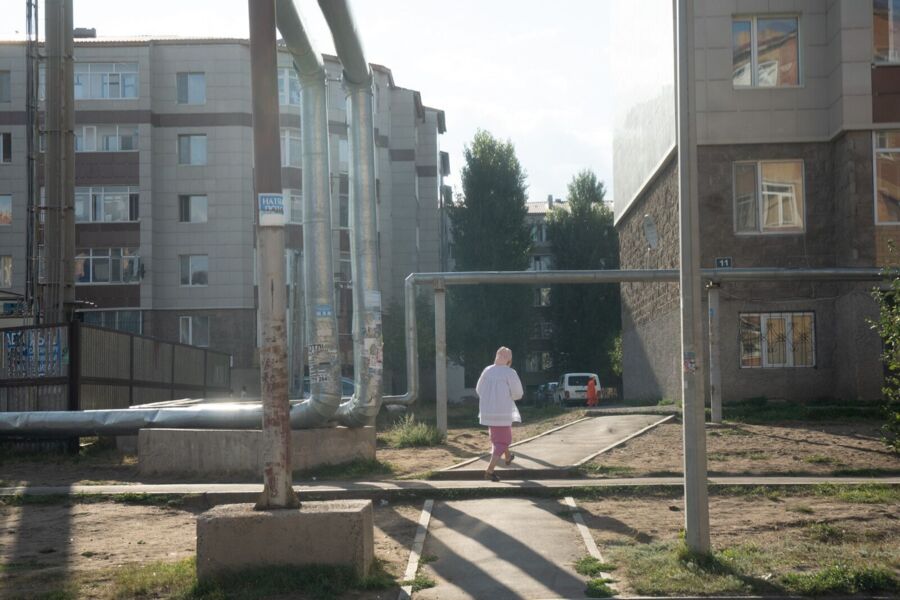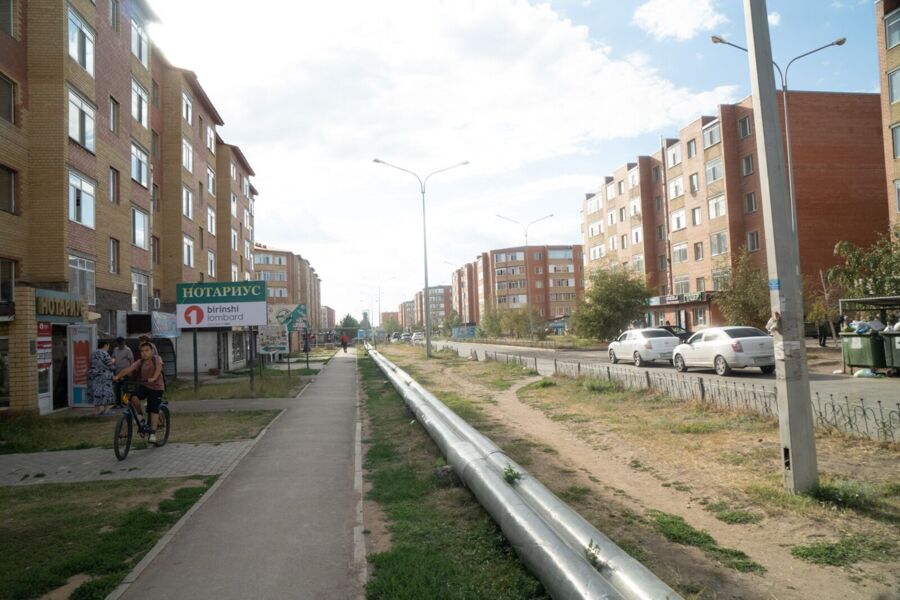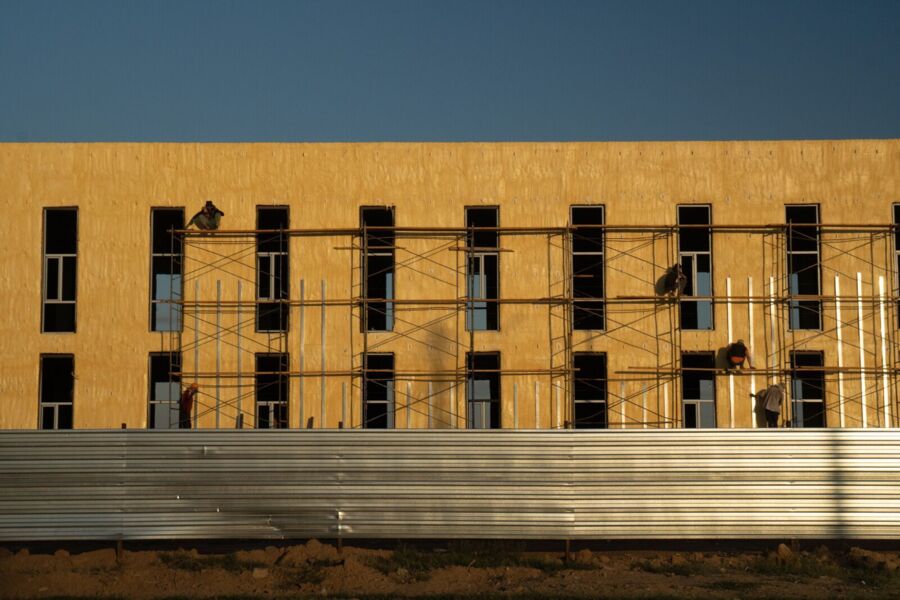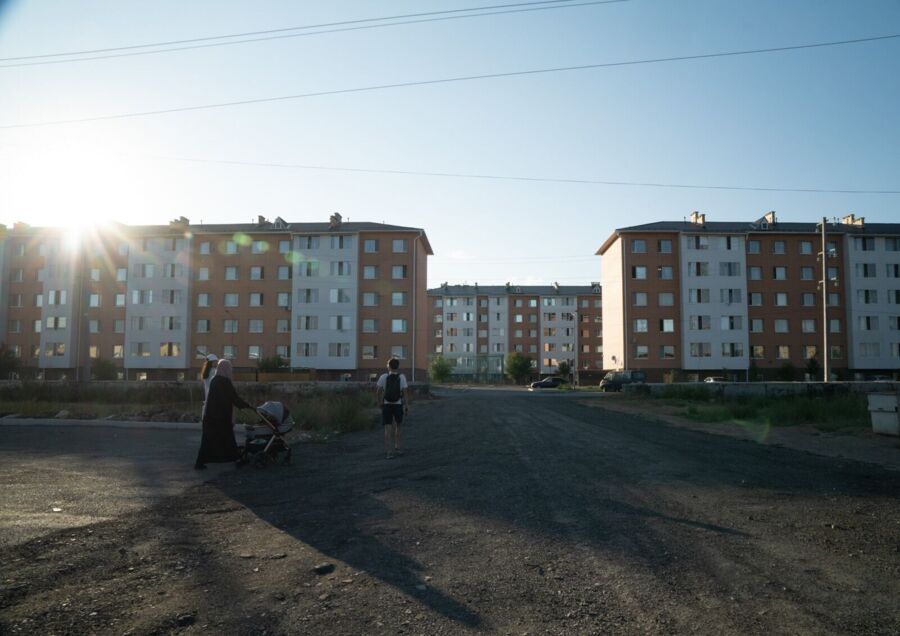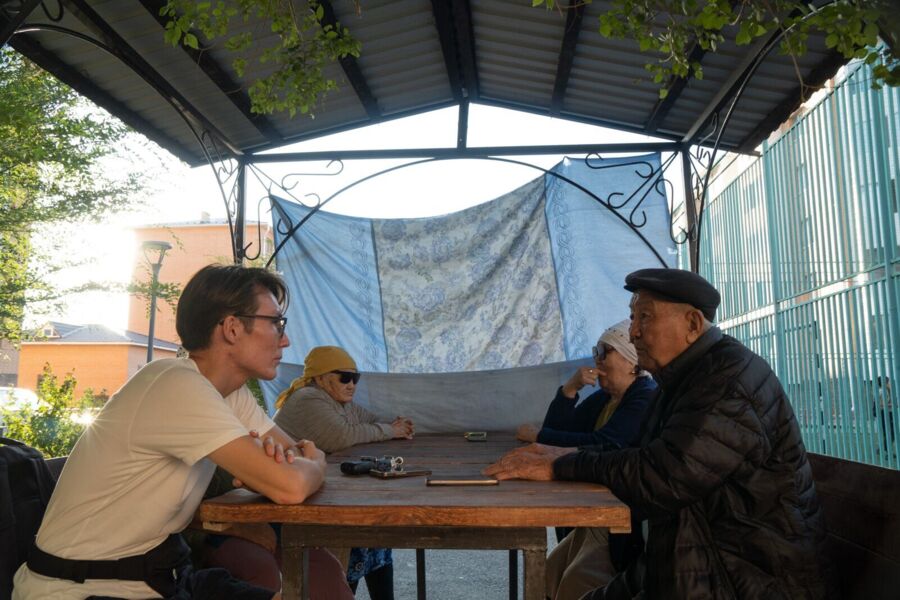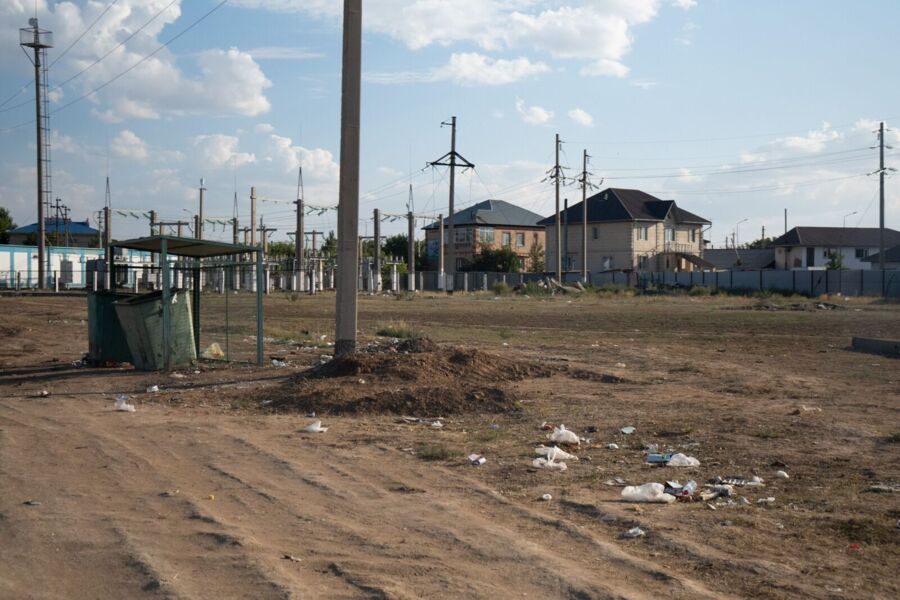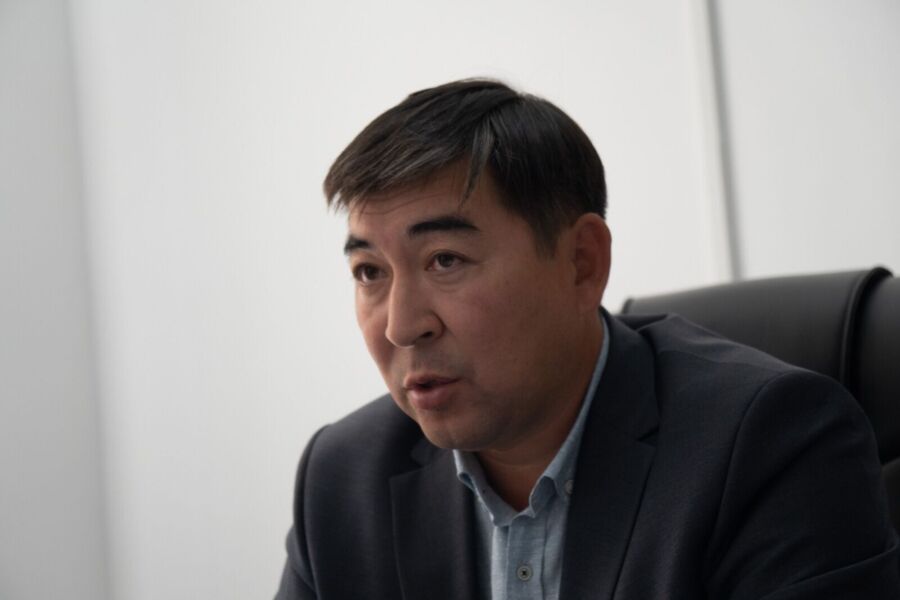Kosshy residents have long asked to integrate their village to nearby Astana in the hope of solving long-standing infrastructure and logistical problems. In July 2021, however, Kosshy’s status was transformed from village to city. Vlast traveled to Kosshy to cover how life in the newly-minted city has changed in the past two years.
From Astana to Kosshy we tried to board the intercity buses that stop along one of the capital’s main arteries, Kabanbay Batyr Avenue. We could not fit into Bus 303 the first time we tried, as the driver tried to get the doors closed for several minutes. So we had to wait for the next one.
Meanwhile, cars lined up around the bus stop, gathering commuters who wished to go to Kosshy for an informal fee of 400 tenge ($0.85).
"Lesnaya Polyana! Lesnaya Polyana! One more seat,” a driver shouted, trying to find a fourth passenger to fill his car and start the journey.
Lesnaya Polyana is one of Kosshy’s microdistricts. The trip to Kosshy only takes around 30 minutes, on a road dotted with a concrete plant, some large unfinished buildings, a green line of trees, and a long bike lane.
Most people get off the bus at Lesnaya Polyana, the first stop, before entering Kosshy. The microdistrict consists of residential complexes and looks like a bustling city center compared to the original village a few kilometers away. “Kosshy is over there,” a local vendor on the roadside told us, as if creating a barrier between the two places.
New Status, Old Problems
Kosshy had been a village for a long time when in 2021 it received the status of “city”. While official data accounts for around 50,000 residents, the local authorities believe that more than twice as many live in Kosshy. The former village has turned into a sort of “dormitory area of Astana”. Because of its reliance on the capital’s economy, residents have long asked to integrate it into the city, rather than to give it its own status.
Local activist Marat Sapargali, a Kosshy resident since 2019, said that by registering their address outside the capital, residents lose out on several state programs.
“Residents who want to participate in state programs need to be registered in Astana. If you register here, you lose out on some opportunities. Unless they give the opportunity to participate in these programs to residents of Kosshy, the registration rate will dwindle,” Sapargali said.
Sapargali has experienced life in “the village of Kosshy” and then, for the past two years, in “the city of Kosshy”, yet he said he does not feel the difference. The only improvement, he noted, is the municipal snow removal service. Until two years ago, residents had to clear the snow themselves.
Electricity is routinely cut off in the city, Sapargali said. He noted that in February his home was left without electricity for 18 hours. Because the water supply is connected to electricity, at times of blackout there is also no water.
Sapargali said he believes that the utility company KIPEST acted just as a middleman, without taking care of planning and repairs. Residents would prefer to be serviced directly by AEDC, the main utility company in the region, but instead intermediary company Orda Kurylys replaced KIPEST as the service provider.
Dependence on Astana
Akzharkyn moved to Kosshy from Astana only a couple of months ago. She used to travel to work to the town’s medical center for two years. According to her, Kosshy has a bit of everything, but infrastructure and expertise, from playgrounds to specialized medical staff, are missing.
“They say there are no shortages just because they lump it all together with Astana, but in reality several villages around the city feel the distance,” Akzharkyn said.
Residents of Kosshy must travel to Astana for medical care, local resident Altyn Sariyeva confirmed.
As she spoke, Sariyeva was interrupted by the noise of a plane flying overhead. This is a common occurrence here due to the proximity of the airport. She complained that the noise often interferes with her sleep.
Unemployment and Chaotic Development
Sariyeva moved to Kosshy from the city of Satpayev in 2013 for the sake of her children and grandchildren. According to her, there were no prospects for young people elsewhere in the region.
“Here, we have the same problems as in Astana. Massive housing developments are yet to be supplied with heating and water. It's clear that no thought was given before construction. On a rainy day, these courtyards and roads turn into a swamp. Children need to wear rubber shoes. I'm so infuriated by how this was built and designed. It’s the akim’s fault,” says Sariyeva.
A construction boom kicked off in Kosshy after it received the status of “city”. As a consequence, Abzalbek argued, most of the jobs there are in construction.
Abzalbek had moved from Mongolia a decade ago and chose Kosshy because housing was affordable. A construction worker in Astana, Abzalbek noted houses and urban infrastructure are poorly maintained.
“In Kosshy, the houses are being ‘slaughtered’. At night, some courtyards are only lit by lights from the surrounding homes. The city is dirty, there is garbage everywhere,” Abzalbek added.
Kosshy also hosts hundreds, possibly thousands of seasonal workers, some come for a couple of months, some for just a few weeks. Yerlan Samanov, the husband of a hostel owner, said that over the summer rooms are mostly booked by seasonal workers.
“Builders from Almaty lived here for a month and said that they would return in a week. We also hosted geologists from Kazgeology. We are close to the airport, so people also book a room for a day before moving on,” Samanov said.
The Samanov family moved from Karaganda, a couple of hours south of Astana, to Taitobe, a village within the Kosshy territory, in 2017 with their five children. They wanted to be closer to the capital, Samanov said.
Sleeping and Surviving
Taitobe became part of the city of Kosshy in January, but residents said the conditions of the infrastructure continues to worsen. Samanov noted the lack of a sewage and water supply systems. “People use septic tanks and everyone has a well,” he said. The local government had promised to install a water supply system in 2019, but technical violations stopped the work and the overground real estate development took precedence.
“Now, [unusable] water pipes are buried underground, which means that to fix them, you need to dig up everything. Now, they are already laying asphalt for a road there, so they will likely have to do it all over again when they redo the water supply system,” Samanov said.
Local resident Azat, who moved to Taitobe three years ago, said that Kosshy’s new “city” status has had little effect on everyday life.
“Everyone either leaves or wants to leave for Astana. In order to find something to eat, drink or buy, you need to go to the capital. Everything here is expensive, in Astana it’s cheaper,” Azat said.
Azat, currently unemployed, said he makes ends meet by doing odd jobs. Most of those who have jobs must commute daily to Astana.
In the evening, people returning from the capital fill up Lesnaya Polyana. The noise of children playing echoes in the courtyards, while older people sit around, playing cards. Toleukhan Yelimsarin, 85, moved to Kosshy in 2019 to reunite with his family. He complains that the state has forgotten about pensioners. Despite having worked for 46 years, his monthly pension only totals 90,000 tenge ($187).
“They don’t care whether we exist or not. How can we survive on such low pensions? The government knows about this, but they do little to stop this inflation. Young people also don’t earn enough money. I have lived through ten presidents, starting with Stalin. I was six when the war ended and I remember hunger and broken windows. All my life I drank black tea and ate stale bread. This needs to change,” Yelimsarin said.
“Green Light” to the Future
Deputy mayor Asset Mukanov believes in the future of Kosshy, especially now that it grew in status from village to city. He noted how errors from the past are currently being fixed. In addition, a new hospital with 350 beds should be built by 2025.
“Unofficially, there are 100,000 people living in the city. Residents ask for public gardens and parks, but this is all at the expense of the local budget and we don’t have enough. We are advancing all these projects with the help of the regional and republican budgets,” Mukanov said.
The deputy mayor said the administration launched last year a pilot project of intra-city routes with a 19-seater minibus in addition to transit from Astana. According to Mukanov, this way residents would not pay twice for their commute.
“We are also launching a route from Taitobe to Kosshy. Because of its social significance, we will be able to subsidize it,” Mukanov said.
The connection to the gas grid will begin in 2025, after Astana is connected. Meanwhile, the central boiler room at the heating plant is operating at maximum capacity, Mukanov admitted.
While this small heating station was advertised as an “eco” furnace, residents said that in fact this small plant is fueled by coal.
When asked about the strategic plan for the development of the city, Mukanov said: “A village doesn’t just become a city in a year or two. If there is enough funding, our city will develop. Look at our traffic lights, they are already the same as in the capital”.
Поддержите журналистику, которой доверяют.
